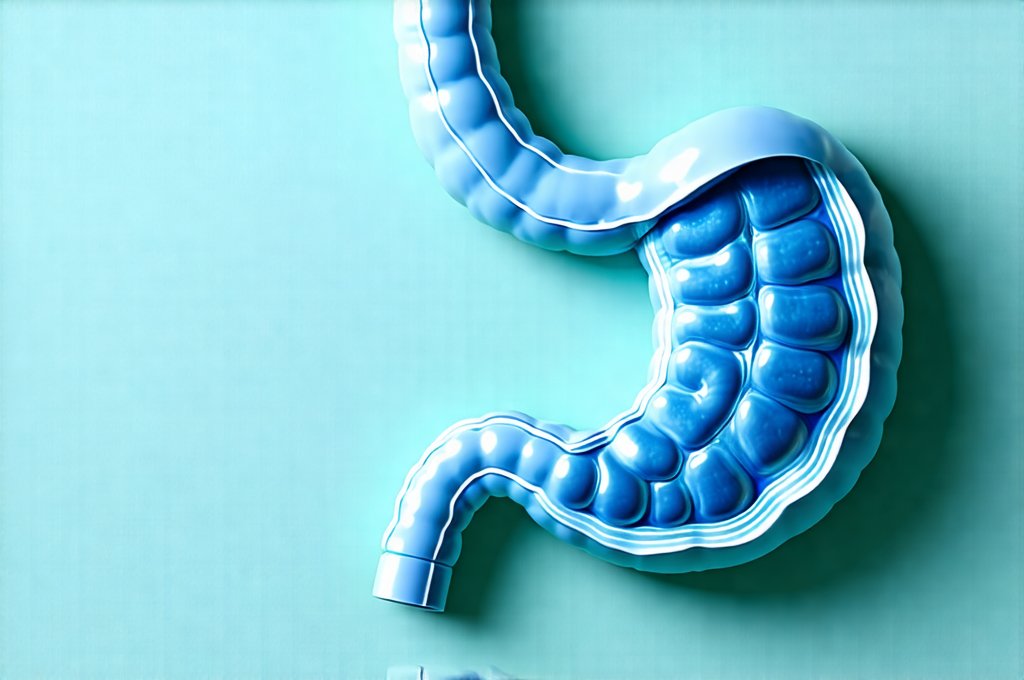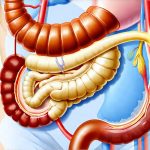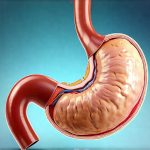Bloating – that uncomfortable feeling of fullness, tightness, and sometimes even pain in your abdomen – is something many people experience at some point in their lives. It’s often dismissed as simply “having gas,” but for those who struggle with chronic bloating, it can significantly impact quality of life, leading to social anxiety, discomfort during daily activities, and a general feeling of unwellness. Understanding the complex interplay between our digestive system and factors that contribute to bloating is crucial for finding effective management strategies. While diet often takes center stage in discussions about bloating, the rate at which your stomach empties – known as gastric emptying rate – plays a surprisingly significant role, often overlooked by those seeking relief.
The process of digestion isn’t just about breaking down food; it’s about moving it through the digestive tract efficiently. When this movement is disrupted, or happens too quickly or too slowly, it can set off a cascade of events that lead to bloating. Gastric emptying rate refers to how long it takes for food to move from your stomach into the small intestine. This seemingly simple process is governed by a complex interplay of neurological and hormonal signals, influenced by factors like the composition of your meal, stress levels, and underlying health conditions. A disruption in this rate can lead to fermentation in the stomach or small intestine, gas production, and ultimately, that frustrating bloated sensation. It’s important to remember that bloating is often a symptom, not a disease itself, and identifying the root cause – including issues with gastric emptying – is key to finding lasting relief. Understanding emotional health can also provide insight into managing bloating symptoms.
The Science of Gastric Emptying
Gastric emptying isn’t a one-size-fits-all process. Its speed is dynamically adjusted based on what you’ve eaten. – Fats generally slow down gastric emptying, as they require more extensive digestion. – Carbohydrates tend to empty at a moderate rate. – Protein falls somewhere in between, but can also influence the emptying of other foods when consumed together. Liquids typically exit the stomach faster than solids. This carefully orchestrated process allows for optimal nutrient absorption and prevents overwhelming the small intestine. When this process is thrown off balance – either too fast or too slow – it can contribute significantly to bloating symptoms. A delayed gastric emptying rate, often referred to as gastroparesis in more severe cases, means food remains in the stomach for longer than normal. This prolonged stay allows more time for fermentation by gut bacteria, leading to increased gas production and feelings of fullness and discomfort. Conversely, a rapid gastric emptying rate can also contribute to bloating, though it’s less commonly discussed.
Rapid emptying doesn’t necessarily mean less bloating; it can overwhelm the small intestine’s capacity to process food efficiently. This leads to undigested carbohydrates reaching the colon, where they become fuel for bacteria, again resulting in gas and bloating. Furthermore, a rapid rate can disrupt nutrient absorption, potentially leading to other digestive issues that exacerbate bloating symptoms. The relationship isn’t always straightforward; individual sensitivities and gut microbiome composition play a role in how these rates translate into subjective experiences of bloating. It’s also important to note that the perception of bloating is highly individual – what feels intensely uncomfortable for one person might be barely noticeable for another. Even social pressure can influence how we perceive digestive discomfort.
Gastric emptying is regulated by several factors beyond food composition. Hormones like ghrelin (which stimulates appetite) and cholecystokinin (CCK, which promotes satiety and slows gastric emptying) play a critical role. The vagus nerve, a major component of the parasympathetic nervous system, also exerts significant control. Stress and anxiety can disrupt vagal tone, affecting gastric motility and potentially leading to delayed emptying or erratic patterns. Certain medications, particularly those that affect gut motility (like opioids), can also influence gastric emptying rate. Identifying these contributing factors is essential for developing a personalized approach to managing bloating symptoms. Late-night scrolling can add stress and disrupt this process.
Factors Contributing to Delayed Gastric Emptying
Delayed gastric emptying isn’t always a sign of a serious medical condition, but it’s important to understand potential causes beyond dietary choices. – Diabetes: Both type 1 and type 2 diabetes can damage the vagus nerve, which controls stomach contractions and therefore impacts emptying rates. – Neurological conditions: Parkinson’s disease, multiple sclerosis, and stroke can all interfere with nerve signals that regulate digestion. – Medications: As mentioned earlier, certain medications like opioids, anticholinergics, and some antidepressants can slow down gastric emptying. – Surgery: Previous stomach or vagus nerve surgery can also disrupt normal digestive function.
It’s crucial to consult a healthcare professional if you suspect delayed gastric emptying, as proper diagnosis is essential. Diagnostic tests include gastric emptying studies (GES), where you consume a meal containing a radioactive substance that allows doctors to track how quickly it leaves your stomach via imaging techniques. Lifestyle modifications and dietary adjustments can often help manage mild cases of delayed emptying. These may include eating smaller, more frequent meals; avoiding high-fat foods; and staying hydrated. However, in more severe cases, medication or other interventions might be necessary. Understanding how acid affects the body can also help with overall digestive health.
The Role of the Gut Microbiome
The trillions of bacteria that reside in your gut – collectively known as the microbiome – play a surprisingly large role in gastric emptying and bloating. An imbalance in gut bacteria (dysbiosis) can lead to increased fermentation of undigested carbohydrates, resulting in excessive gas production and bloating. Certain bacterial species are more prone to producing gas than others, and an overgrowth of these species can exacerbate symptoms. The microbiome also influences the rate at which food moves through the digestive tract; it impacts gut motility and even hormone levels that regulate gastric emptying.
A healthy, diverse microbiome is crucial for optimal digestion and minimizing bloating. Promoting a balanced microbiome involves several strategies: – Diet: Consuming a diet rich in fiber, prebiotics (foods that feed beneficial bacteria), and probiotics (live microorganisms) can support a healthy gut ecosystem. Fermented foods like yogurt, kefir, sauerkraut, and kimchi are excellent sources of probiotics. – Antibiotics: While sometimes necessary, antibiotics can disrupt the microbiome; it’s important to use them judiciously and consider probiotic supplementation after antibiotic treatment. – Stress management: Chronic stress can negatively impact the microbiome; practicing stress-reducing techniques like meditation or yoga can help maintain a healthy gut balance. If you plan to travel, taking care of your gut microbiome is especially important.
Dietary Strategies for Managing Gastric Emptying & Bloating
Diet is often the first line of defense against bloating, but it’s not always about eliminating foods entirely. It’s more about understanding how different foods affect your individual gastric emptying rate and adjusting your diet accordingly. – Low-FODMAP Diet: This dietary approach involves temporarily reducing intake of fermentable oligosaccharides, disaccharides, monosaccharides, and polyols (FODMAPs) – carbohydrates that can cause gas and bloating in sensitive individuals. It’s best implemented with the guidance of a registered dietitian. – Smaller Meals: Eating smaller, more frequent meals reduces the burden on your stomach and allows for easier digestion. – Thorough Chewing: Breaking down food mechanically through thorough chewing aids digestion and reduces fermentation in the gut.
Hydration is also crucial. Drinking enough water helps move food through the digestive tract and prevents constipation, which can exacerbate bloating. Avoiding carbonated beverages and artificial sweeteners can also minimize gas production. Identifying your individual trigger foods is key; keeping a food diary to track what you eat and how it affects your symptoms can be incredibly helpful. Remember that personalized nutrition is paramount – what works for one person may not work for another. Experimenting with different dietary strategies under the guidance of a healthcare professional or registered dietitian can help you find a sustainable approach to managing bloating and optimizing your gastric emptying rate. Consider how certain cooking oils might affect your digestion, too. Also, remember that even alcohol-free beer can sometimes play a role in digestive discomfort for some individuals.


















